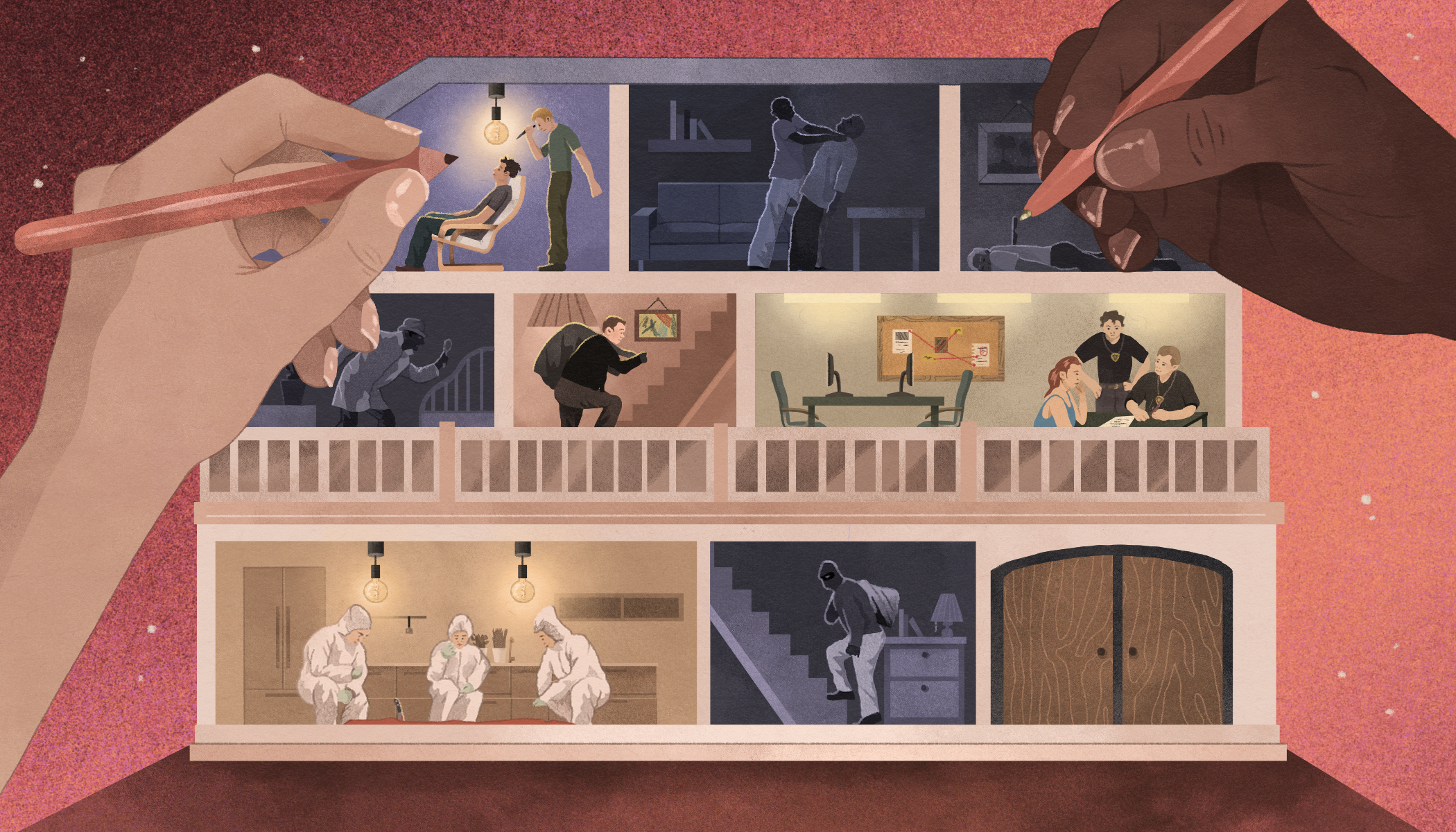The mystery and crime-writing genre set its roots in detective novels, with early hits like The Notting Hill Mystery by Charles Felix in 1862 and A Study in Scarlet by Sir Arthur Conan Doyle in 1887. In the 20th century, Agatha Christie popularized the whodunit; Dashiell Hammett, the hard-boiled subgenre; and Patricia Highsmith, suspense. If you searched for the top mystery writers of all time, you’d find these three on every list. There’s no arguing that. These storytellers have shaped the way readers view the world—or at least a certain world, since mystery-writing pioneers of color are rarely, if ever, recognized for their contributions.
On most lists, you probably won’t find:
The father of the Black crime novel, Chester Himes, who enjoyed more fame and sold more hard-boiled detective novels in France than he did in the U.S. He wrote the 1965 classic Cotton Comes to Harlem, which was adapted for film.
Read More: If He Hollers Let Him Go by Chester Himes
Barbara Neely, one of the first Black women to break into mainstream mystery publishing. She introduced us in 1992 to an unlikely heroine, house-keeper turned crime solver Blanche White, but died before she could receive the widespread readership she deserved.
Acclaimed Chicano novelist Rudolfo Anaya, who wrote the award-winning 1972 novel Bless Me, Ultima, and the Sonny Baca series featuring an Albuquerque private eye searching for the monster who killed his cousin.
John Rollin Ridge, considered the first Native American novelist, who published The Life and Adventures of Joaquín Murieta: The Celebrated California Bandit in 1854. In this tale—known as the first novel to be published in California—outlaw Murieta turns to violence after violence is visited upon his family. You can’t get more “pioneering” than Rollin Ridge.
Readers visiting from Mars would assume that only white folks were murdered, solved crimes, righted wrongs, and fell in love with no-goodniks with shady pasts or dames with hearts of gold.
Bookstores and libraries introduce readers to novels that offer different life experiences, books filled with people who are haunted, nosy, people who have been bamboozled or murdered. Books mirror real life, and—not that I’m bragging here—in real life, white folks aren’t the only ones whose loved ones go missing. Our neighbors are murdered too. Our relatives commit violent acts. And our private eyes, cops, and lawyers want resolution, retribution, and justice. We know about despair and dark alleys that end in dead ends—and we too want to tell these stories through twisty plots and red herrings, wisecracks and action.
Our stories offer glimpses into the lives of people you may not know, in towns readers sometimes speed through to get to their intended destinations. We write not to diminish the voices of traditional (er, white) mysteries, but to galvanize a genre known for telling the truth about the world, for examining why bad things happen to good people, for sharing the grief that comes with sudden violence and mourning the empty space once occupied by a loved one.
The publishing industry has made some progress over the decades—and Crime Writers of Color, founded in 2018 by three of the best writers in the genre (Walter Mosley, Gigi Pandian, and Kellye Garrett), continues to nurture this progress for the benefit of both authors and readers. Organizations like Mystery Writers of America and Sisters in Crime have strengthened their advocacy, equity, and inclusivity efforts, offering scholarships and resources that nurture emerging and established writers of color.
But awarding a few of us doesn’t help the many remaining. We have so much to add to this gumbo pot of mystery. Publishing and marketing more diverse writers will help the world of books become richer, fuller. I know this is true. If you agree, pull up a chair. We got a bunch of stories to tell.
Howzell Hall is the best-selling author of Land of Shadows, What Never Happened, and more.
- Caitlin Clark Is TIME's 2024 Athlete of the Year
- Where Trump 2.0 Will Differ From 1.0
- Is Intermittent Fasting Good or Bad for You?
- The 100 Must-Read Books of 2024
- Column: If Optimism Feels Ridiculous Now, Try Hope
- The Future of Climate Action Is Trade Policy
- FX’s Say Nothing Is the Must-Watch Political Thriller of 2024
- Merle Bombardieri Is Helping People Make the Baby Decision
